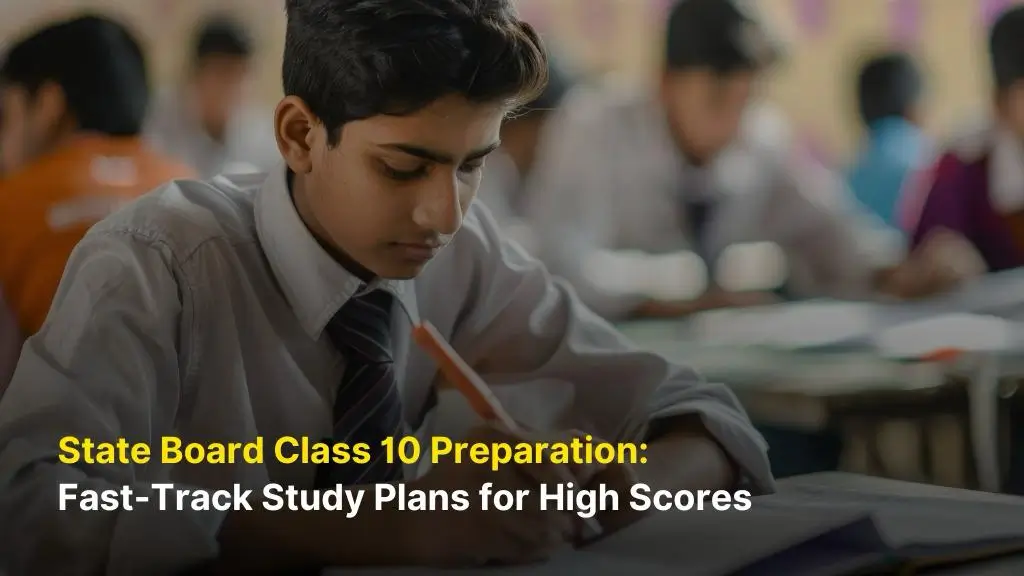For many students, the term State Board is often used interchangeably with school-level education, but it represents a distinct curriculum with its own syllabus, marking schemes, and exam patterns. Unlike CBSE or ICSE, which follow national-level standards, State Boards are administered by individual states in India, with a focus on local languages, state-specific history, and regional educational priorities.
Understanding these differences is crucial for students aiming to excel in the State Board Class 10 exams. While CBSE emphasizes conceptual understanding and preparation for competitive exams, and ICSE is known for its detailed syllabus and comprehensive evaluation, State Boards generally have a slightly simpler syllabus but a heavier focus on textbook-based learning. Fast-track preparation requires tailoring strategies specifically for this curriculum.
Comparative Overview: State Board vs CBSE vs ICSE
Below is a comparative table highlighting key differences for better clarity:
| Aspect | State Board | CBSE | ICSE |
|---|---|---|---|
| Syllabus | State-specific, moderately detailed, focuses on textbooks | National syllabus, concept-based, easier to grasp for competitive exams | Extensive syllabus, detailed, requires in-depth study of every topic |
| Exam Pattern | Mostly textbook questions, regional examples | Objective + subjective questions, application-oriented | Subjective-heavy, elaborate answers, analytical questions |
| Difficulty Level | Moderate | Moderate to high, especially for problem-solving subjects | High, with detailed content and analytical focus |
| Focus Areas | Core concepts + state history/language | Core concepts + competitive exam readiness | Detailed knowledge, writing skills, application-based learning |
| Preferred For | Local students, state-level colleges | Students preparing for national exams (JEE, NEET) | Students seeking strong academics and international exposure |
Fast-Track Study Plans for State Board Class 10
Once students understand the differences, fast-track preparation can be planned effectively. The goal is to cover the syllabus efficiently while maximizing scores.
Prioritize High-Weightage Chapters
Identify chapters that frequently appear in exams and carry the most marks. Allocate more time to these topics while maintaining a brief review of low-weightage chapters. For example, in Science, focus on Physics and Chemistry experiments, and in Social Science, pay attention to important historical events and geographical processes. For students aiming at higher studies, these practices also build a solid base for NEET classes and other competitive exams.
Focused Study Blocks
Divide study time into dedicated blocks for each subject. A morning session can focus on theory-heavy subjects, afternoons on problem-solving or numerical exercises, and evenings on revision and practice questions. This structured approach prevents fatigue and ensures consistent progress. Students who adopt such habits find it easier to transition into rigorous programs like JEE classes, where discipline and consistency are essential.
Active Revision Techniques
Active revision is key for fast-paced preparation. Use mnemonics, flowcharts, and diagrams to memorize important formulas, definitions, and dates. For languages, practice writing essays and short answers to improve speed and accuracy.
Practice with Previous Year Papers
State Board exams often include textbook-based questions and frequently repeated patterns. Solving past year papers helps students understand exam trends, improve time management, and identify weak areas. Focused practice ensures quick coverage of multiple chapters and also trains students for exams like Engineering CET, where exam patterns often repeat and consistent practice is the key to success.
Mock Tests and Self-Assessment
Regular mock tests help simulate exam conditions. After each test, analyze mistakes carefully and revise related chapters. This method reinforces learning and builds confidence for the real exams.
Time Management and Consistency
Balancing speed and accuracy is crucial. Avoid spending excessive time on a single topic. Consistent study sessions with clear targets every day improve retention and performance.
Well-being and Focus
Even in fast-track preparation, mental and physical well-being cannot be ignored. Short breaks, light exercises, and adequate sleep help maintain focus and reduce stress.
Key Takeaways
Fast-track preparation for the State Board Class 10 exams is most effective when students understand how the State Board differs from CBSE and ICSE, prioritize high-weightage chapters, and adopt a structured study routine. By integrating active revision techniques, practicing previous year papers, and taking regular mock tests, students can cover the syllabus efficiently and boost their scores.
Maintaining a balance between speed and accuracy, while taking care of mental and physical health, ensures consistent performance. With expert guidance from Suresh Dani Classes, students can confidently navigate the State Board curriculum, focus on scoring areas, and achieve top marks in the 2025 exams — while also laying the groundwork for competitive streams.






